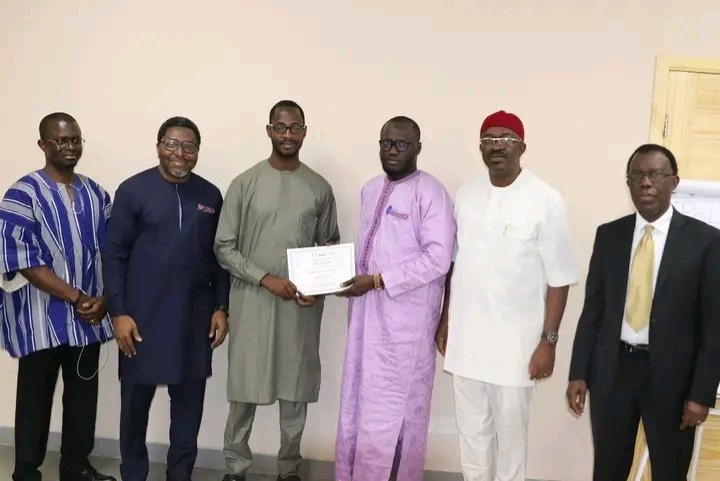It’s a naked truth that policies don’t get effected overnight. That is precisely why they’re referenced ” a course of action” which is continual, gradual and passes through three varying stages- formulation, approval and implementation.
Still and all, that doesn’t qualify them to be quite tenuous in becoming fruitful and life-transforming. Governments have reigned and gone so as nightmare polices that never attained their objectives.
All of which to an extent, share the same dishonorable means of financing; a shared feature of all Gambian governments of which I coined as “state mendicancy”.
The PPP stewardship was the first governorship of the Gambia. An administration that followed the crowd as African countries parade towards the rescue missionaries (the Briton-wood institutions) in the late 1970s and early 1980s as their only hope of securing their leadership and the guaranteeing of state responsiveness to socio-economical demands at a time.
With the emergence of the APRC government, the national revenue out-sourcing strategy was again re-employed; the country’s foreign policy and allies at the global stage was been seen ping-ponging steered by interests of grants and loans with no other agenda inclusive.
Today, after a collective effort of instigating a political renaissance, the country yet again saw a trend re-surface. The new government spearheaded by president Adama Barrow as chief executive has been seen continentally touring the globe in search of fiscal assistances.
A traditional syndrome that the followership of this country never harbored as a foresight for the newly crowned administration. The time for a U-turn towards an era characterized by domestically raised revenue has long elapsed yet, viable.
That said and done, lets now unearth the rationales behind the advocation of an economically independent Gambia and its viability.
It’s incontestable that the Gambian economy is a tax based economy and a fragile one too, but that’s not the end to it. It is a reality to be readdressed and a pattern to be restructured. To revitalize the Gambian economy, the productive sectors must be fully utilized.
Fisheries being one of the major contributing sectors to the Gambian GDP of about 12% as registered in the 2012 UNDP annual report must be prioritized. A sector that employs about 200,000 Gambians with both artisanal and aquacultural sub-sectors combined together. Reforming such a sector through proper resource management and planning powered by governmental investment could’ve catapulted the national treasury of this country.
Tying it to the agricultural sector would’ve been a thoughtful administrative dribble by the government in outmaneuvering the problems of a sickly economy and a deteriorating human wellbeing. Modernizing this sector through the provision of advanced implements for a year-round agricultural produce ensured by the wondrous riverGambia would’ve earn the nation the capacity to be self-reliable and sustaining.
But the million dollar question is, what path has the government of the Gambia taken?
The tourism sector, the nourishment of the indigenous industries and the welcoming of multi-national cooperations ought to have been made the engine of economic growth and development. How about the navigable river Gambia with an amazing strategic port? We could expand the port-harbor and maximize reexport trade within the sub-region for national revenue generation.
Multi-national cooperation’s willingness to get settled, spreading their businesses and tentacles all over the country could’ve been skyrocketed if the governorship had made land easily accessible.
We are a population of 1.9 million as recently reported by the statisticians which isn’t that attractive in the eyes of these foreign investors, but making land less-cost demanding will trigger their desire to operate in the Gambia leading to their eventual establishment in the country.
We have a decapitated and paralyzed indigenous industries. Traditional industries like the soup, leather and groundnut processing industries and their products were disrecognized by the Nationals of this country due to the uncontrollable importation of foreign products.
This made them die out. However, their rejuvenation is feasible. All that ought to be done isn’t placing an embargo on imports in entirety, that would be disastrous and unwise. Rather, what ought to be done is idolizing the principle of “selective exploitation” where products that are produceable
here would be restricted entry from foreign countries, while those that we fall sort of allowed to be imported. Such way, we will be capable of combating unemployment and simultaneously nurture these nationally precious industries as contributors to nation building.
The prevalence of these conditions undoubtedly would’ve ensured economic prosperity were tax reduction on the masses and wage increment would be realizable.
Notwithstanding, private sector led development should be prioritized as a vehicle of economic transformation and development. Considering NAWEC being one of the most poorly performing service rendering state owned institution, the facts are written all over. NAWEC since its inception has proved to be a non-self sustaining public institution.
Most of the funds used to keep its services alive are state-sponsoring. I’m not saying that the state shouldn’t come to their rescue in times of need since it is a cooperative institution, but to an extent, ought to be financially independent and not a bilker of national revenue.
At this juncture, NAWEC is mightily indebted; social security half-way bankrupted due to the financial drain NAWEC put them through engineered by the former regime’s head of executive. NAWEC must learn to stand on its feet and not leaning on the government for their survival.
They must start being dependent on the internal revenues of the company from which their employees will be paid. It is either they take a forward-leap by becoming profitable and feeders of this nation’s economy or privatized to curtail government expenditure.
Budget crippling is also another aspect to be considered by the new government. This would’ve aided in shrinking down unnecessary and priority-contentious governmental expenses. Institutions of this country must trace out means of becoming self-sustaining.
Revenue generating sectors ought to be the primary beneficiaries of the national treasury since the financial inputs in these institutions stand lofty chances of being redeemed in the long-run. Super-hyper-inflating budget allocations to Chief-servant institutions of which the president’s office falls under should be revisited. I must admit that their official duties are of immense relevance but the funds going into this institutions can’t remain unchecked. It should commensurate with the exact finance needed for national duty execution.
The presence of these administrative good practices will verily serve as a cure to our daring national issues that has long interrupted the voyages of longevity towards the promise land.
Author: Karamba Jallow,Political science student,University of The Gambia.The views expressed in this article are the author’s own and do not necessarilyreflect The Voice’s editorial stance.





